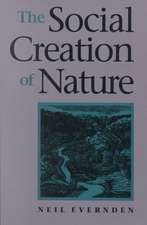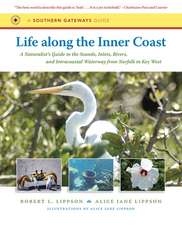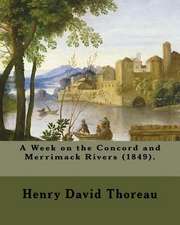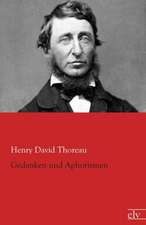Where I Lived, and What I Lived for
Autor Henry David Thoreauen Limba Engleză Paperback – 30 apr 2006 – vârsta de la 18 ani
The perfect books for the true book lover, Penguin's Great Ideas series features twelve more groundbreaking works by some of history's most prodigious thinkers. Each volume is beautifully packaged with a unique type-driven design that highlights the bookmaker's art. Offering great literature in great packages at great prices, this series is ideal for those readers who want to explore and savor the Great Ideas that have shaped our world.
Thoreau's account of his solitary and self-sufficient home in the New England woods remains an inspiration to the environmental movement—a call to his fellow men to abandon their striving, materialistic existences of 'quiet desperation' for a simple life within their means, finding spiritual truth through awareness of the sheer beauty of their surroundings.
Thoreau's account of his solitary and self-sufficient home in the New England woods remains an inspiration to the environmental movement—a call to his fellow men to abandon their striving, materialistic existences of 'quiet desperation' for a simple life within their means, finding spiritual truth through awareness of the sheer beauty of their surroundings.
Preț: 70.55 lei
Nou
Puncte Express: 106
Preț estimativ în valută:
13.50€ • 14.15$ • 11.16£
13.50€ • 14.15$ • 11.16£
Carte disponibilă
Livrare economică 21 martie-04 aprilie
Preluare comenzi: 021 569.72.76
Specificații
ISBN-13: 9780143037583
ISBN-10: 0143037587
Pagini: 93
Dimensiuni: 109 x 178 x 10 mm
Greutate: 0.09 kg
Editura: Penguin Books
ISBN-10: 0143037587
Pagini: 93
Dimensiuni: 109 x 178 x 10 mm
Greutate: 0.09 kg
Editura: Penguin Books
Notă biografică
Henry David Thoreau was born in Concord, Massachusetts in 1817. He graduated from Harvard in 1837, the same year he began his lifelong Journal. Inspired by Ralph Waldo Emerson, Thoreau became a key member of the Transcendentalist movement that included Margaret Fuller and Bronson Alcott. The Transcendentalists' faith in nature was tested by Thoreau between 1845 and 1847 when he lived for twenty-six months in a homemade hut at Walden Pond. While living at Walden, Thoreau worked on the two books published during his lifetime: Walden (1854) and A Week on the Concord and Merrimack Rivers (1849). Several of his other works, including The Maine Woods, Cape Cod, and Excursions, were published posthumously. Thoreau died in Concord, at the age of forty-four, in 1862.



















